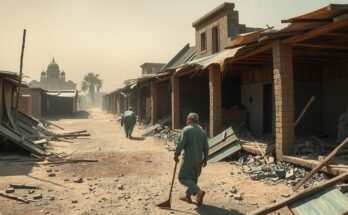South Korea is engulfed in controversy after a pivotal investigation revealed egregious fraud and human rights abuses linked to its foreign adoption programme, as detailed by the Truth and Reconciliation Commission. The report condemned the government for its role in the adoption practices which saw the falsification of birth records and the misrepresentation of children who had living parents as orphans, revealing a system of deep neglect and exploitation.
Historically, South Korea holds the record as the leading exporter of adoptees globally, with approximately 200,000 children adopted overseas since the Korean War in 1953. In the aftermath of the war’s destruction, the nation, rather than establishing a comprehensive welfare framework, chose to facilitate international adoption as the main solution for orphaned and disabled children, especially under military regimes in the 70s and 80s.
The Truth and Reconciliation Commission’s findings spotlight a plethora of human rights infringements within South Korea’s foreign adoption framework. As noted, out of the initial 100 cases investigated, 56 were recognised as victims of state-sanctioned human rights violations, with the report indicating that children were treated as mere commodities, sent abroad akin to cargo, prioritising profit over ethical considerations.
The inquiry highlighted rampant legal neglect and a lack of oversight, with many adoptees pressured into leaving the country under questionable circumstances. Concerningly, cases surfaced where adoptions occurred even following the death of children, as surviving infants were unlawfully sent overseas in their place, with insufficient validation of parental consent and meticulous safety checks for prospective adopters.
The investigation also discovered instances of fabricated identification and a glaring lack of regulatory structure, allowing a profit-driven adoption industry to flourish unchecked. It asserted that the South Korean state had failed in safeguarding the human rights of adoptees, who were denied fundamental protections under both national and international laws, primarily in a bid to avoid budgetary allocations for domestic welfare.
In light of these revelations, the commission has called for the government to issue an official apology to the affected adoptees and to conduct an extensive review of adoptees’ citizenship and related issues. Recommendations include ratifying The Hague’s Convention on Protection of Children, highlighting a need for significant reforms in adoption practices.
Responses from adoptees to the report vary, with some expressing dissatisfaction at the limited scope of the investigation. Others, however, regard the findings as a crucial step toward reckoning with the past. Calls have intensified for the South Korean government to ensure justice and offer reparations for those affected by these dubious adoption practices, including facilitating genetic testing for biological family connections.
A recent investigation has uncovered serious fraud and human rights abuses in South Korea’s foreign adoption programme, implicating the government in falsifying records and misrepresenting children. Approximately 200,000 South Korean children were sent abroad since the Korean War, amid a lack of welfare for the vulnerable. The Truth and Reconciliation Commission’s report identifies numerous violations, leading to calls for an official apology and regulatory reforms within the adoption system.
The South Korean foreign adoption scandal, a poignant reflection of systemic failures and human rights violations, has triggered urgent calls for accountability and reform. With growing recognition from within the adoptee community, the report serves as a significant acknowledgment of past injustices. Moving forward, the government’s pledge to implement the Truth and Reconciliation Commission’s recommendations is critical for healing and restoring dignity to those impacted by this painful legacy.
Original Source: www.firstpost.com



